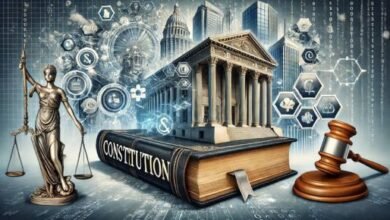8 Frequently Asked Questions About the Bill of Rights
1. What is the Bill of Rights?
The first ten amendments of the U.S. Constitution have a collective name-known as the Bill of Rights, which outlines and guarantees individual freedoms and rights and limits the power of the federal government.
2. Why was the Bill of Rights created?
It was designed to provide protection for individual rights and to respond to concerns voiced by Anti-Federalists during ratification of the Constitution, which believed that the new government was going to become too powerful.
3. What date was the Bill of Rights ratified?
December 15, 1791
Read Also:
- https://legalsagehub.com/10-essential-questions-about-fundamental-rights-and-duties/
- https://legalsagehub.com/6-key-questions-about-constitutional-amendments-explained/
- https://legalsagehub.com/15-questions-about-judicial-review-you-should-know/
4. What rights do the Bill of Rights guarantee?
Major rights are:
Freedom of speech, religion, press, assembly, and petition (1st Amendment)
Rights to bear arms (2nd Amendment).
Protection against unreasonable searches and seizures (4th Amendment).
Rights of the accused, including due process and protection from self-incrimination (5th Amendment).
Right to a speedy and public trial (6th Amendment).
Protection from cruel and unusual punishment (8th Amendment).
5. Does the Bill of Rights apply to state governments?
The Bill of Rights originally applied only to the federal government. However, through the Fourteenth Amendment and the process of incorporation, many provisions now apply to state governments as well.
6. Can the Bill of Rights be amended?
The Bill of Rights, like any part of the Constitution, can be amended. However, the process is intentionally difficult, requiring approval by two-thirds of Congress and ratification by three-fourths of the states.
7. What are the Ninth and Tenth Amendments?
The Ninth Amendment means that because certain rights are enumerated in the Constitution, it does not deny the existence of others. The Tenth Amendment states that powers not delegated to the federal government are reserved to the states or to the people.
8. How does the Bill of Rights affect modern life?
The Bill of Rights is the basis for many legal and civil rights protections in the United States, shaping court decisions, government policies, and daily freedoms like free speech, privacy, and fair treatment under the law.
